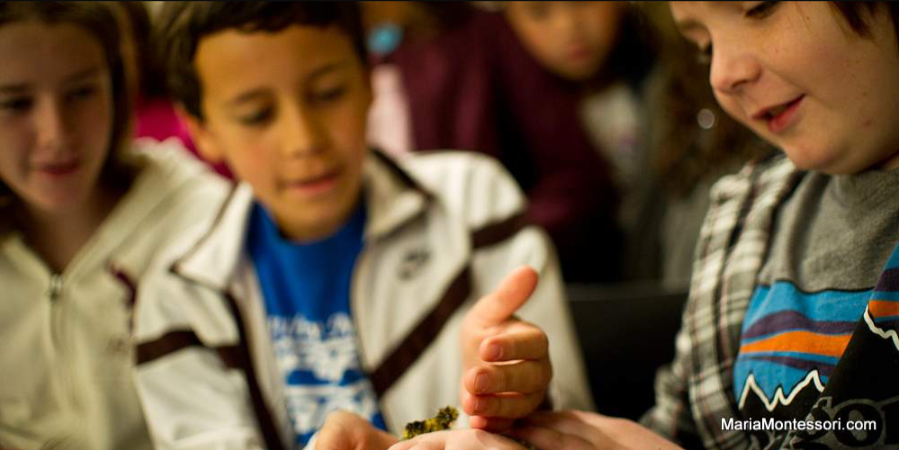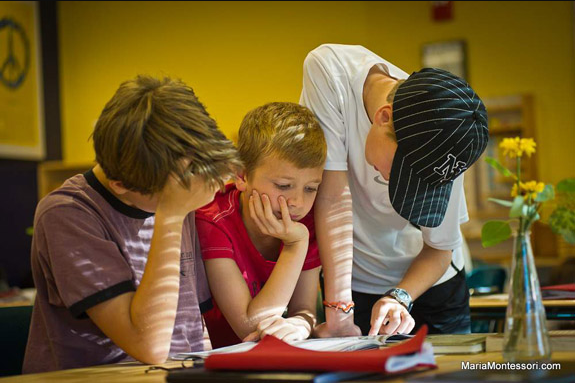
October 30, 2022
A few days ago I watched the movie “Home” (available for free viewing online). It paints a fascinating picture of the impact that human beings have had on our planet over the past century.
One of the main themes of the movie is the interdependence of the Earth’s three kingdoms – animal, vegetable, and mineral. If we pollute our waters, it is not just fish that will suffer. If we reduce the variety of crops we plant, it is not just humans who will be affected. In short, by ignoring or abusing the relationships found in Nature, we risk upsetting the delicate balance that makes the Earth such a comforting home.
As I watched the film, I couldn’t help but wonder what we as parents and educators are doing to help children understand these connections. We keep hearing how it will be up to our children – our next generation – to solve the problems that the past generations have created. We know that the problem-solvers will be those who have a comprehensive understanding of the issues. And yet… Are we giving our children an education that provides a vision of interdependence among all of the planet’s inhabitants (living and non-living)?
A Cosmic Vision
The introduction to the movie “Home” discusses the creation of the Universe, the development of life on Earth, and the complex role human beings have played since their appearance on the planet. What a coincidence… These are precisely the themes of the first three Cosmic Fables presented in the Montessori Elementary classroom!
Cosmic Fables (aka, Great Lessons or Cosmic Tales) are grand stories told at the beginning of every school year to all the children in the elementary environment. We use the term “cosmic” because these stories help the children develop an organized understanding of the Universe and how everything within it relates (cosmic comes from cosmos, meaning: “the Universe as a well-ordered whole”). The word “fable” identifies a story that stirs the imagination and sparks questions of a moral nature (right vs. wrong). Imagination and morality are two of the elementary child’s most formidable learning tools.
These great narratives set the stage for the children’s exploration of all the subject areas. They prepare the children for work that has a purpose and meaning far beyond passing tests and receiving grades. Additionally, these stories encourage children to appreciate the contributions of past generations and empower them to build a better future. Perhaps most importantly, they help children understand the relationships between the topics they study, and what impact these relationships have on the present and future conditions of the planet.
You might be asking: IS everything interrelated? What does biology have to do with history or language with math? After all, aren’t these topics taught and tested separately in traditional schools?
To answer these questions and understand how Montessori supports the vision of the whole, let’s follow the learning experiences of Peter, a seven-year-old boy enrolled in a quality Montessori elementary environment. As you navigate through the lessons, keep in mind that they take place over a period of time that respects Peter’s interests, abilities, and desire for the in-depth formation of knowledge. Contrary to traditional schooling practices, Montessori education does not split up “learning” into 45-minute blocks but instead permits the child to spend as much time on each exploration as necessary to reach full understanding through hands-on experiences.
A Mile in Peter’s Shoes
On Monday, Peter receives a lesson on perpendicular and oblique lines. He spends some time using the related Geometry materials with a friend, writes down their observations, and then the boys decide to look for the two types of lines in their classroom environment (they’re everywhere!).
The next day, the teacher feeds Peter’s interest in lines by giving him a lesson on how the Sun’s rays strike the Earth at different latitudes (perpendicularly between the Tropics and obliquely everywhere else). Peter is amazed to discover that his perpendicular and oblique lines are partly responsible for climate differences around the globe!

After spending the morning working with the related Geography materials, Peter reads about world climates and discovers that vegetation and farming vary by climate zone. Curious about what vegetables will grow well in his climate zone, he consults a chart of agricultural climate zones and explores a seed catalog. Then Peter writes a letter to his teacher and classmates proposing that they invest part of their class budget to buy five new kinds of seeds for their vegetable plot. He calculates how much the investment would be and how much money would be left in the budget. He will present the letter during the classroom’s group meeting.
In the afternoon, still thinking about the vegetable plot, Peter decides to listen in on a story the teacher is telling about ancient farming practices and how they gave rise to the first great civilizations. She talks about the ancient Sumerians, and Peter is fascinated by their achievements!
He and two friends decide to explore the Sumerian’s accomplishments, which takes them into a week-long exploration of the ancient writing and math systems. When they feel ready, Peter and his friends prepare an oral presentation, an essay, and a poster board, which they present to a small group of interested children.
As part of his exploration, Peter and his friends learn that the Sumerians were responsible for dividing the circle into 360 parts, or degrees. His teacher shares with them a beautiful story about the voyage of a star, which helps to illustrate the concept of degrees. This sends Peter and a classmate into a frenzy of activity, as they endeavor to measure all the angles they can find! But measuring is not enough… Soon, they want to add and subtract angles!
And so, Peter spends his days in his Montessori classroom engaged in work that he finds fascinating, challenging, and deeply satisfying. In his mind, a vision of the world is taking shape – a world of tightly woven relationships. He begins to understand cause and effect at a universal level. The knowledge he gains will help him become aware of consequences and will encourage conscientious decision-making. Above all, Peter’s experiences will help him appreciate the achievements of past generations and realize that he, too, can make positive contributions to the world.